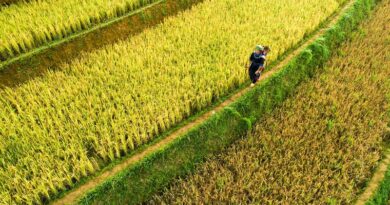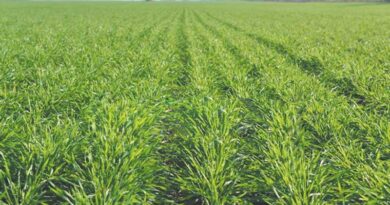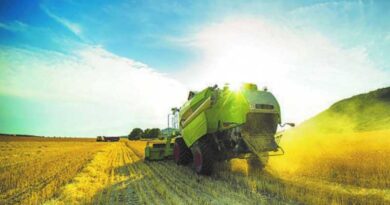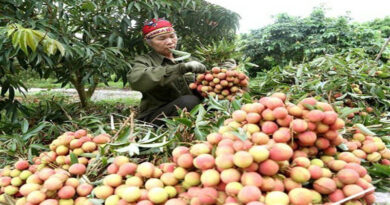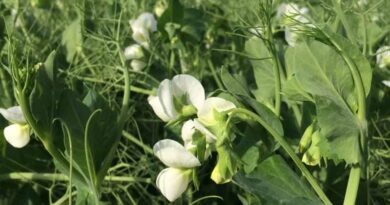With the sharp drop in vegetable prices this winter, how can we avoid the phenomenon of “cheap vegetables hurting farmers”?
06 December 2023, China: Although vegetable prices rise and fall, which is a normal market phenomenon, the impact of sharp price drops on farmers cannot be ignored at any time. What is worth thinking about is how to prevent this phenomenon of “cheap vegetables hurting farmers” from happening again and again?
Beginning in November, a large number of seasonal vegetables such as cabbage, radish, and potatoes are on the market in the northern region. The joy of harvest is still there, but vegetable farmers in the fields first feel the “chill”. Market price monitoring in Xinfadi, Beijing, shows that throughout November, the wholesale price of cabbage was as low as 20 cents per pound and as high as 45 cents. Potato prices dropped by 30%, and cabbage and celery prices also dropped to their lowest point in recent years. In the countryside, vegetables such as Chinese cabbage and radishes are even cheaper, only a few cents per pound, giving everyone a clearer understanding of the “cabbage price”.
Why are vegetable prices so low this winter? The main reason is increased production. The price of winter vegetables in 2022 will be relatively good, vegetable farmers will be motivated, and the overall planting area will increase. In addition, the temperature in autumn and winter this year is relatively high, which is conducive to the growth of northern vegetables, and the temperature does not drop significantly after winter. The market cycle of northern vegetables is extended, and the southern vegetables are successively on the market. As a result, the supply of vegetables in the market will increase significantly in the short term. It is worth noting that North China suffered from floods this summer. In order to reduce losses, many farmers temporarily replanted cabbages, radishes, etc. that are easy to grow and manage. This also increased the vegetable planting area in North China, leading to oversupply.
So, what do you think of this round of vegetable price decline? From a market perspective, the decline in vegetable prices has a certain rationality. The seasonal vegetables in early winter in the northern region are concentrated in a few varieties. When they were launched in November and December in previous years, the market was temporarily unable to digest them, and prices sometimes dropped seasonally. In recent years, China’s vegetable planting area has grown steadily, with the national sown area reaching 337 million acres in 2022. With the improvement of vegetable production levels, varieties are becoming richer, unit yields are increasing, and the total volume is gradually expanding. This provides citizens with more diversified consumption choices, but at the same time it also dilutes people’s spending power. After all, market demand is limited. If there is more supply from the production side, the sales price will naturally drop.
We might as well give the market some patience. Although vegetable prices are currently at a low level, as temperatures continue to drop, northern open-field vegetables are gradually withdrawn from the market, and market supply shifts to southern vegetables and northern facility vegetables. As the cost of planting and transportation increases, vegetable prices will gradually rise. The upcoming New Year’s Day and Spring Festival will also further increase vegetable consumption demand and drive up vegetable prices. “Troubles” at the end of sales will be quickly transmitted to all links in the production chain, mobilizing all parties, especially farmers, to adjust the next crop of vegetable production in a timely manner and promote vegetable prices to return to normal.
Although vegetable prices rise and fall, which is a normal market phenomenon, the impact of sharp price drops on farmers cannot be ignored at any time. According to media reports, in Shandong, Hebei, Inner Mongolia and other places, some vegetables are sold at low prices or even left in the vegetable fields without being harvested. Farmers have no choice but to plow the vegetables directly and return them to the fields. Vegetable planting is an important source of income for some people, and the impact of a loss of vegetables in one season on them is self-evident. What is worth thinking about is how to prevent this phenomenon of “cheap vegetables hurting farmers” from happening again and again?
Changes on the demand side should attract more attention. Not only have winter vegetable prices fallen, but also the price fluctuations of agricultural products such as hairy crabs “diving” and pig prices “halving” since this year have also attracted attention. Subtle changes in the market are not only affected by a single production factor, but are often also affected by multiple factors such as consumption habits and market expectations. Take Chinese cabbage as an example. With the support of modern transportation logistics and mature planting technology, consumers can eat and buy it all year round. The market demand for cabbage stored in winter has been greatly reduced, and people’s consumption concepts have become more rational. Similarly, in addition to pork, beef, mutton, chicken, duck, and fish are also widely welcomed in the market, reflecting the changes in residents’ dietary structure. In addition, we should also note that in recent years, agricultural products have been increasingly affected by uncertain factors such as climate change and natural disasters, and their price trends have become increasingly difficult to predict.
Whether it is capturing these market signals to guide production, preventing and responding to natural risks, or improving land bargaining power, farmers alone are obviously not enough and require joint efforts from the government, new business entities and other parties. On the one hand, it is necessary to better utilize the role of the government’s hand, strengthen the monitoring and regulation of the agricultural product market, provide farmers with scientific decision-making basis, and reduce blindness in planting. It is necessary to speed up the construction of cold chain logistics facilities for warehousing and preservation, promote the staggered listing of agricultural products, balance the supply, and try to prevent clustering and selling at low prices. When market prices are low, we promptly strengthen the connection between production and marketing to help farmers expand sales channels and improve circulation efficiency. On the other hand, it is necessary to help farmers actively adapt to market changes, reasonably control the planting scale, timely adjust the planting structure, select and breed high-quality varieties, establish brand awareness, and enhance competitiveness. In this year’s hairy crab “diving” environment, the price of Yangcheng Lake and Hongze Lake hairy crabs has not fluctuated much, precisely because of their strong quality and brand. New business entities such as leading agricultural enterprises and farmers’ cooperatives must also actively connect with small retail investors and guide them to carry out standardized production. At the same time, they will use their own advantages to directly connect with sales terminals such as supermarkets and communities to reduce intermediate distribution links and help farmers increase their pricing initiative.
It is understood that in order to help vegetable farmers reduce losses, various localities have resorted to hard and practical measures. For example, Linying County in Henan Province promptly investigated the situation of unsalable vegetables, strengthened contact with wholesale markets, and went directly to the fields to organize supply of goods, striving to ease farmers’ selling vegetables. Disaster. No winter is insurmountable. We hope that all parties will act quickly and work with vegetable farmers to weather this “cold wave” and welcome spring.
(For Latest Agriculture News & Updates, follow Krishak Jagat on Google News)



